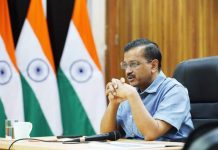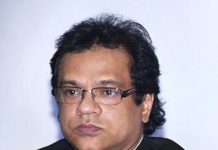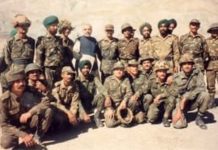The Russia-Ukraine war that began on February 24, 2022 when Moscow invaded major cities across Ukraine, including Berdyansk, Chernihiv, Kharkiv, Odessa, Sumy, and the capital Kyiv, has left the world more unstable. It is clear that President Vladimir Putin miscalculated the prowess of Ukraine to withstand the deadly assault. The US-led West doubly miscalculated that it can bring Russia on its knees through sanctions. However, this only heightened tensions leading to death of thousands of Ukrainian civilians, destruction of countless buildings, energy crisis, food shortage, a battered economy and threat of a nuclear conflict.
The war has disrupted global trade that was still recovering from the pandemic. Caught between the ambitious nations, Ukraine has become a macabre of death and devastation. The United Nations is watching the grim situation helplessly as no side agrees to yield. The war has highlighted the fragility of the UN as it has so far failed to end the stalemate. Russian businesses have been blacklisted in many countries, yet Moscow has been able to strengthen economic ties with China, though Beijing is keeping its distance from the fighting and so far has not sent weapons. But if it sends military aid to Russia, Beijing has the ability to transform the war’s trajectory. Putin has already reinforced military links with international outcasts North Korea and Iran and it continues to build influence in Africa and the Middle East.
The defiant tone of Ukrainian President Volodymyr Zelenskyy that “every tomorrow is worth fighting for” makes it clear that the bruised country is not prepared to bow. Zelenskyy has said Ukrainians proved themselves to be invincible during “a year of pain, sorrow, faith and unity and since the onset of war we haven’t fallen asleep.” He in fact declared 2023 as the year of Ukraine’s victory over Russia.
India which is on the side of peace has to decide whether to remain bystander or make an effective intervention to facilitate a ceasefire. A year since President Vladimir Putin ordered the invasion, 141 countries backed the resolution calling for a “comprehensive, just and lasting peace” in Ukraine while 32 countries including India abstained from voting in the UN General Assembly. With the world recognising Prime Minister Narendra Modi’s influence over Russian president Vladimir Putin, India can play a proactive role in forging peace.
At a time when the world is divided into two camps, the Tehelka SIT investigative report (Part-2) “Nailing the bogus doctors” reveals how hospitals hire foreign medical graduates while turning a blind eye to their failure to clear the mandatory Foreign Medical Graduate Examination [FMGE]. Tehelka in the first part of the story, published in the last issue, had exposed how many fake doctors with degrees from foreign universities in Russia, Ukraine, China, the Philippines, Bangladesh, Pakistan and Nepal among had been illegally practicing in India and endangering lives.













